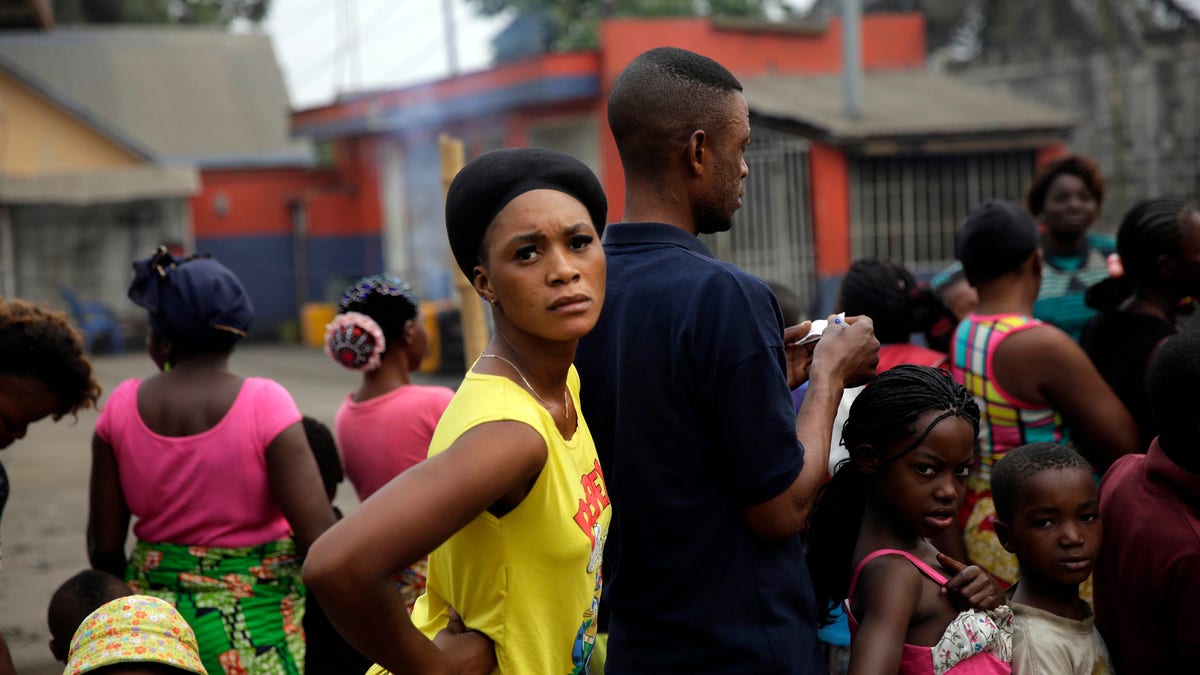
Residents of the Kisenso district of Kinshasa, Congo, line up to receive yellow fever vaccines on Thursday, July 21, 2016. Some experts say about 40 million vaccines are needed to extinguish the outbreak _ enough to immunize everyone in Angola and Kinshasa. To date, the World Health Organization and partners say they have shipped more than 18 million doses of yellow fever vaccine for emergency campaigns. They are 22 million doses short. (AP Photo/Jerome Delay) (Copyright 2016 The Associated Press. All rights reserved. This material may not be published, broadcast, rewritten or redistribu)
Some 6,000 people in Angola and Democratic Republic of Congo may be infected with yellow fever, six times the number of confirmed cases, but no new infections have been found since July 12, an "extremely positive" trend, the World Health Organization said on Wednesday.
The looming rainy season has raised fears of further spread of the worst outbreak in decades of the mosquito-borne haemorrhagic virus among unprotected African populations.
Some 7.7 million people were vaccinated this month in a major campaign in the "high-risk" Congo capital of Kinshasa, along with 1.5 million in other parts of the country, the WHO said. In Angola, 2.4 million people have been vaccinated, making 11.6 million in all.
"Although the yellow fever situation is improving, we agreed that this event continues to be serious and requires sustained measures, but does not constitute a public health emergency of international concern at this time," Oyewale Tomori, chair of WHO's Emergency Committee, told a news conference.
"We are not out of the woods yet," added the Nigerian professor.
More than 400 people have died in the former Zaire and Angola since December.
Intense population movements across the border to neighboring Republic of Congo pose a risk of further spread, the WHO panel of independent experts said.
The Brazzaville government should consider a "pre-emptive vaccination campaign in high-risk areas", it said, adding that the virus was moving towards Central Africa and East Africa.
Dr Peter Salama, executive director of WHO's emergencies program, said of Angola and Democratic Republic of Congo: "We project at the moment that there are no more than 6,000 suspected cases...We have confirmation of about 1,000 cases now in both countries. There might be cases going undetected."
"Trends are extremely in positive in both countries, the Emergency Committee has not advised this is a public health emergency of international concern partly because they have felt the response and the epidemiology are pointing in the right direction," Salama said.
The campaigns have depleted the global stockpile of 6 million yellow fever vaccine doses twice this year already, which the WHO says is unprecedented.
The four major manufacturers who supply the global stockpile have worked around the clock to replenish the stockpile, it says. They are the Institut Pasteur, government factories in Brazil and Russia, and French drugmaker Sanofi.
The WHO's global stockpile has 6 million doses, but it may not be enough if there are simultaneous outbreaks of yellow fever in large urban centres. WHO hopes it will reach 20 million doses by December, Salama said.
